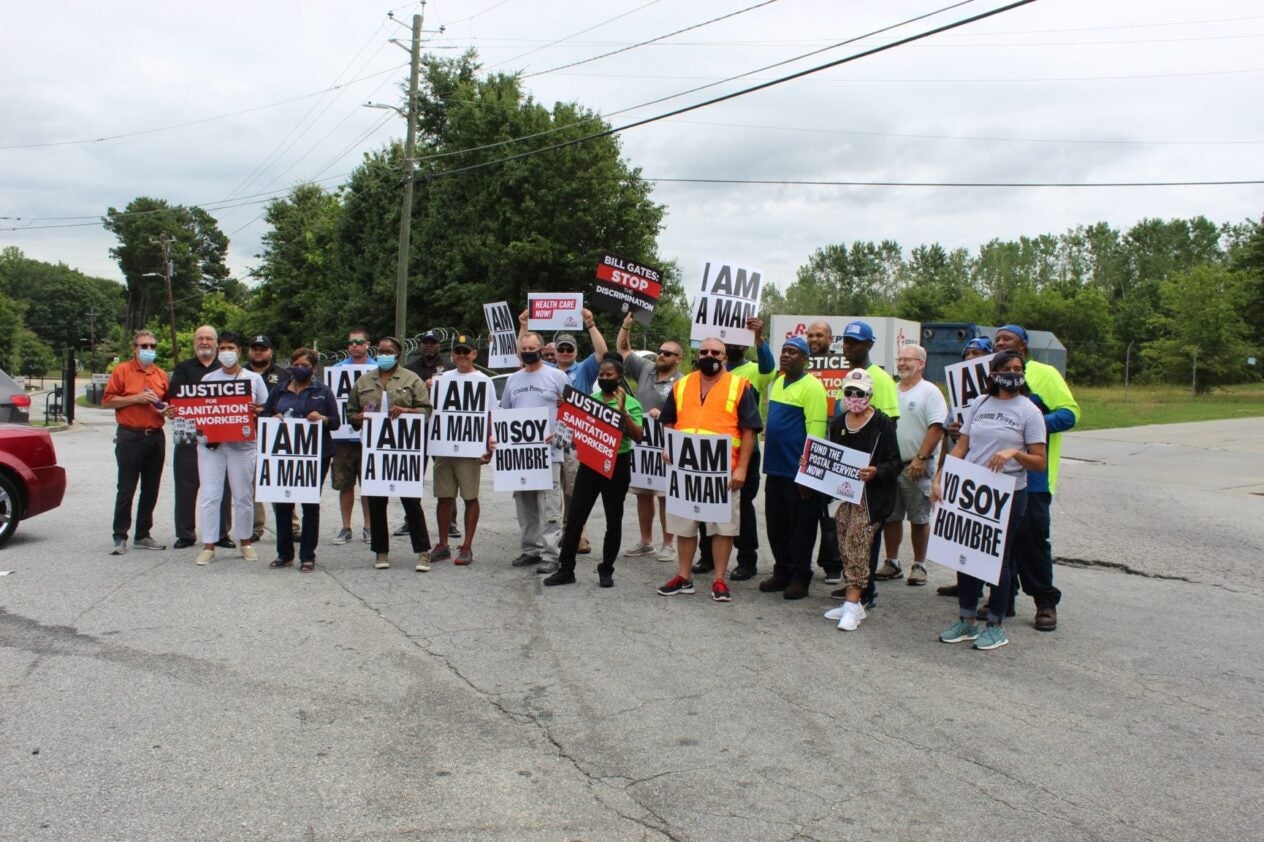Press Releases
Teamsters’ Survey of Republic Services Employees Reveals Race and Gender Discrimination of Frontline Sanitation Workers

Released on Martin Luther King Jr. Day, survey finds a majority of Black workers at the waste management behemoth elevated concerns around discrimination and mistreatment; Teamsters’ shareholder proposal calls for civil rights equity audit as Black and brown employees make up nearly half of Republic Services’ frontline workforce
On Martin Luther King Jr. Day, 2022, the International Brotherhood of Teamsters is calling for a civil rights equity audit of Republic Services, the second largest waste and recycling company in the U.S. The union, which represents roughly 7,000 Republic Services workers nationally, today released a disturbing survey of employees where a majority of workers of color elevated concerns around discrimination and mistreatment.
With responses from 368 drivers, mechanics, administrative and support personnel, managers and other frontline workers, the Teamsters’ survey found 46% of Black respondents and 41% of Hispanic or Latino respondents had witnessed or experienced discrimination at their employer.
Additional findings from the survey include:
- 57% of Black workers, 34% of Hispanic or Latino workers, and 42% of workers of color overall, cited they can “never” or “rarely” report concerns about discrimination in the workplace without causing problems for themselves.
- 55% of Black workers, 48% of Hispanic or Latino workers, and 46% of workers of color overall, cited top leadership would “never” or “rarely” listen with empathy and understanding if they reported concerns about discrimination in the workplace.
- 58% of Black workers, 48% of Hispanic or Latino workers, and 48% of workers of color overall, cited top leadership would “never” or “rarely” take meaningful corrective action if they reported concerns about discrimination in the workplace.
The survey reinforces concerns raised by the Teamsters in a recently submitted shareholder proposal, which urges Republic Services’ Board of Directors to “oversee a third-party audit analyzing the adverse impact of Republic’s policies and practices on the civil rights of company stakeholders” and release a report outlining recommendations for improving Republic’s civil rights impact.
The shareholder proposal goes on to cite that further disclosure is needed around the impact of Republic’s facilities, which include landfills, on surrounding communities. Republic has not currently disclosed meaningful data on its footprint and the sociodemographic of those communities, despite historic environmental racism within the waste industry. The union is also calling on Republic to evaluate its discrepancy in the racial composition of dangerous frontline operations vs. lucrative, and far safer managerial positions.
“The Teamsters’ shareholder proposal demonstrates how important it is for Republic Services to take a long, hard look at how it is treating its frontline essential workers when it comes to issues of race and gender,” said Teamsters General Secretary-Treasurer, Ken Hall. “We urge the board to undertake this effort, be transparent with its stakeholders and shareholders, and most importantly identify real steps and targets to create meaningful change. If Republic is truly committed to their diversity and inclusion efforts, they should be unafraid of having an independent audit and welcoming the chance to address systemic issues of discrimination.”
Similar proposals have won considerable support when they first appeared during last year’s proxy season, with notable votes at major financial institutions, tech companies and pharmaceutical companies. A recent Just Capital public poll also found that the top sustainability goal for Americans was worker issues, with respondents weighting their importance at 40%.
At Republic, a civil rights equity audit would be particularly significant given how dangerous the frontlines are and how Black and brown employees make up nearly half of the frontline workforce. The release of the survey on Martin Luther King Jr. Day has significance for these workers — Dr. King was assassinated in 1968 in Memphis, just after speaking to a group of striking sanitation workers who were facing extremely dangerous conditions, low wages and a long pattern of neglect and abuse of Black employees.